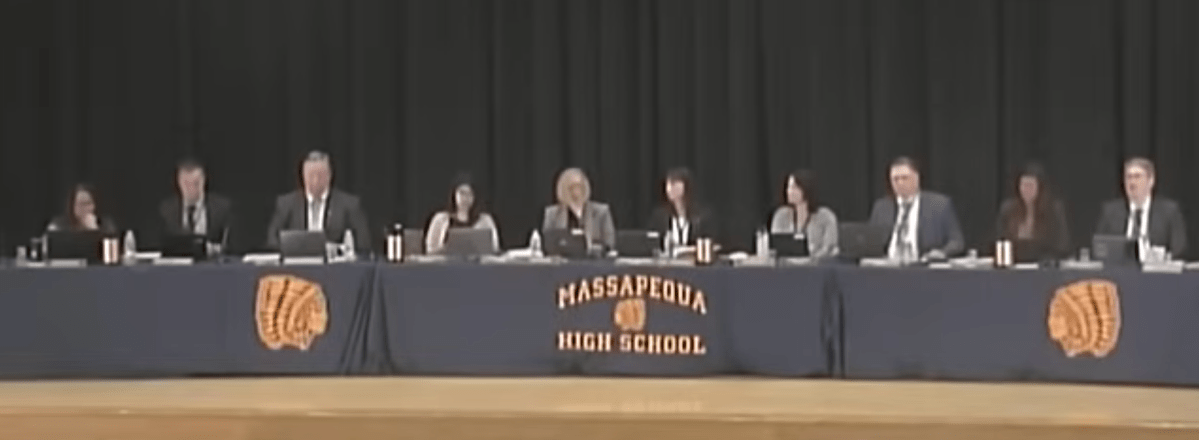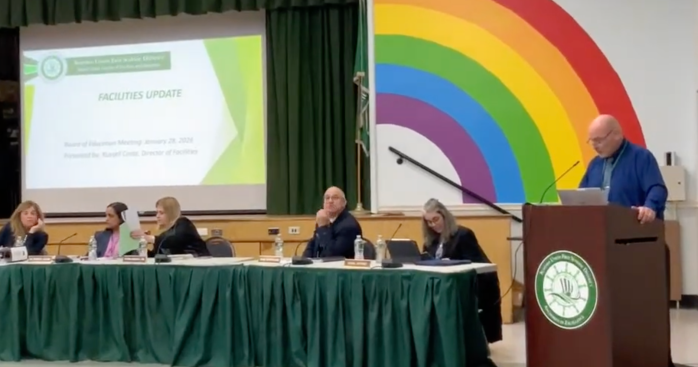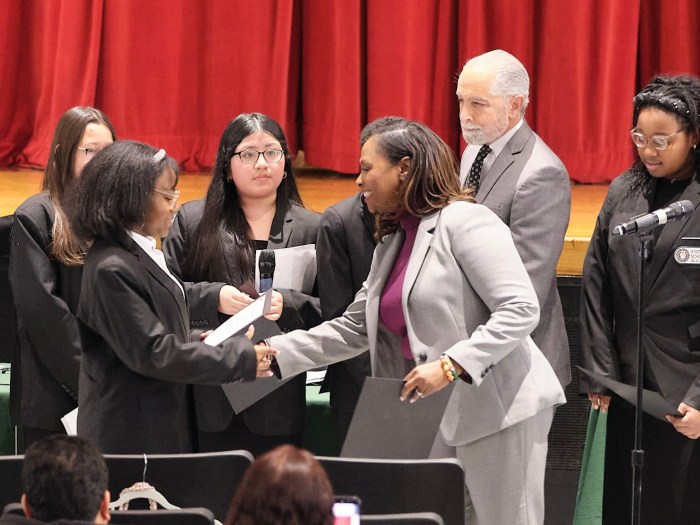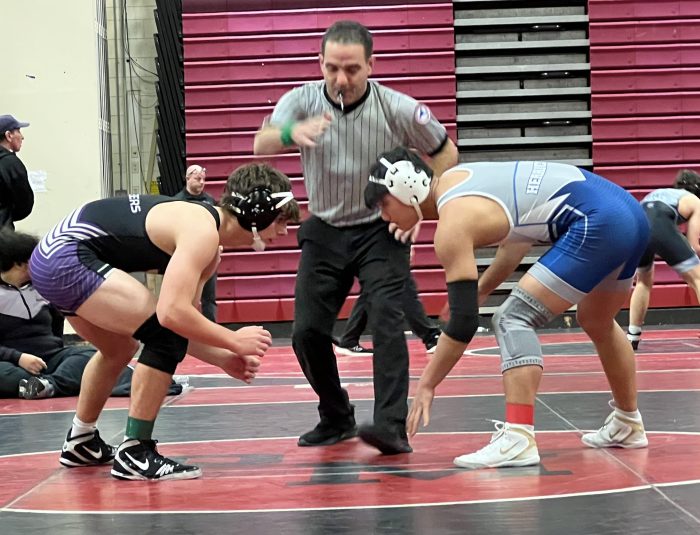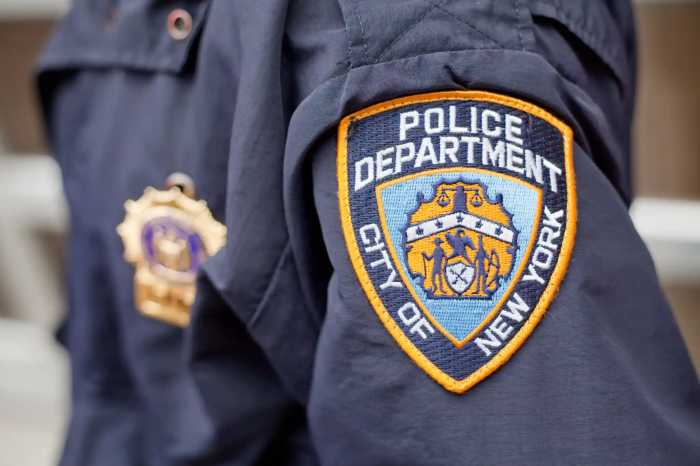Betty Rosa, the state education commissioner, ruled that the Massapequa School District cannot enforce its newly adopted policy that prevents transgender students from using restrooms and locker rooms aligned with their gender identity.
Rosa wrote on Tuesday, Oct. 14, that a stay order was granted for the New York Civil Liberties Union’s appeal of the district’s policy.
“The people of New York State have codified the right to be free from discrimination on the basis of gender identity and expression,” she wrote.
Rosa also wrote that the stay is “pending an ultimate determination of the appeal.”
At the district’s Sept. 9 Board of Education meeting, a resolution was passed which “mandates that all students shall be required to use facilities, including restrooms and locker rooms that correspond with the students’ sex as defined under Title IX and federal law,” according to school district documents.
The board then held a special meeting on Sept. 18 to pass a resolution, allowing the district’s superintendent “to enforce and carry out all of the requirements” from the mandate.
At the district’s Oct. 9 meeting, Massapequa Board of Education President Kerry Wachter read a message from the board before public comment, saying the board’s policy is “clear and rooted in law.”
“It is not hateful or discriminatory to say that biological males may not use female locker rooms or biological females may not use male locker rooms,” she said. “It is common sense. It is law. It is fair and it is a reasonable compromise that protects everyone.”
Although many at the district’s high school gave a round of applause to Wacther, several Massapequa residents expressed their disagreement with the board’s decision.
“The fact that a trans student would be barred from a bathroom in this day and age is horrific,” Massapequa resident Dan Smith said.
One parent, who is transgender and did not provide their name, said it is “horrifying and disgusting” for people to feel in danger because of trans students.
“You are making them afraid. You are telling them that they are being threatened by people who only want to exist,” they said.
Others also spoke in favor of the board’s policy, including a student from Ames High School, who said he had never felt more uncomfortable in his life after being in the locker room with a transgender person.
Emma Hulse, education counsel at the state Civil Liberties Union, previously said the resolution violates state law and is “an affront to our shared values.”
“The Massapequa School Board’s job is to protect and support the young people entrusted to their care. Instead, they are abusing their power and authority to target vulnerable students for who they are,” she said.
The board had issued a statement when the appeal was filed, saying that its priority is the “safety, dignity, and well-being of all students in our care,” and that the board intends to follow the law while also fulfilling its responsibility to “provide a safe and respectful learning environment for every student and for our school community as a whole.”
The NYCLU said it had filed the appeal on behalf of an unidentified transgender student who had said they are being prevented from accessing school facilities because of the new policy.
The school board referenced several Supreme Court decisions and executive orders issued by the Trump administration when passing its resolutions in September.
The Jan. 20 executive order states that a person’s sex “shall refer to an individual’s immutable biological classification as either male or female.”
The board said within its resolution that students who request alternative arrangements “shall be provided access to a designated gender-neutral facility, but shall not be permitted to use facilities designated for the opposite sex.”
State Attorney General Letitia James and the state Education Department issued a statement in February, saying that schools must continue to comply with state law protections for trans students.




